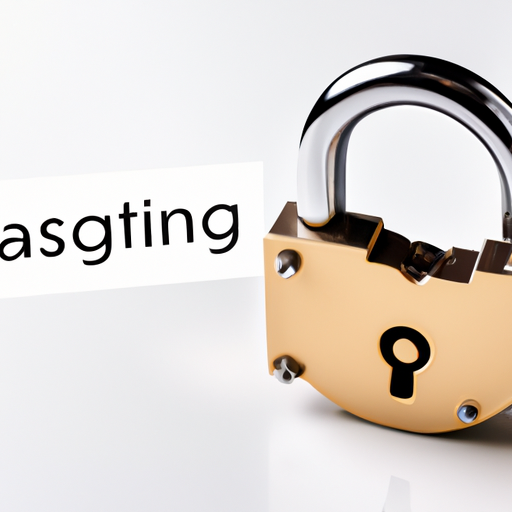In today’s digital age, ensuring the security of online transactions is of utmost importance for businesses. That’s where PCI compliance comes into play. Payment Card Industry Data Security Standard (PCI DSS) compliance is a set of rules and regulations that businesses must adhere to in order to protect sensitive customer information during payment processing. By following these guidelines, businesses can safeguard their customers’ data and maintain a secure payment environment. In this article, we will explore the basics of PCI compliance, its significance in the realm of payment security, and highlight some frequently asked questions (FAQs) related to this topic.

Understanding PCI Compliance
What is PCI Compliance?
PCI Compliance, or Payment Card Industry Compliance, refers to the set of standards and requirements established by the Payment Card Industry Security Standards Council (PCI SSC) to ensure the security of cardholder data during payment transactions. It encompasses various security measures that businesses handling payment card information must adhere to in order to protect sensitive customer data.
Why is PCI Compliance important?
PCI Compliance is important for several reasons. Firstly, it helps businesses to protect their customers’ sensitive payment card information from potential data breaches. By implementing the required security measures, businesses can reduce the risk of compromising cardholder data and the subsequent legal and financial consequences.
Secondly, adhering to PCI Compliance standards enhances trust and reputation. Customers are more likely to trust businesses that demonstrate a commitment to security and protecting their personal information. Implementing PCI Compliance measures can also help businesses gain a competitive advantage by differentiating themselves as trustworthy and responsible.
Lastly, PCI Compliance helps businesses avoid costly penalties and fines imposed by card networks and regulatory bodies. Non-compliance with PCI standards can result in severe financial penalties, increased transaction fees, and even the suspension of the ability to accept payment cards. Complying with PCI standards mitigates these risks and ensures the smooth operation of payment processing without disruption.
How does PCI Compliance work?
PCI Compliance involves implementing a comprehensive set of security measures and practices to protect cardholder data. This includes the installation of firewalls, the use of strong encryption, regular vulnerability assessments, and the implementation of access control measures. Compliance is verified through self-assessments or external audits by Qualified Security Assessors (QSAs) or Internal Security Assessors (ISAs).
Successful implementation of PCI Compliance requires continuous monitoring, regular updates to security systems, and the maintenance of documentation to provide evidence of compliance. Companies that achieve and maintain PCI Compliance demonstrate their commitment to securing payment card information, reducing the risk of data breaches, and building trust with their customers.
Benefits of PCI Compliance
Reduced risks of data breaches
PCI Compliance plays a vital role in reducing the risks of data breaches. By implementing the required security measures, businesses can protect cardholder data from unauthorized access and potential breaches. This includes measures such as encryption of cardholder data, secure storage practices, and secure transmission of data. By proactively addressing security vulnerabilities, businesses can significantly decrease the likelihood of data breaches and the associated financial and legal consequences.
Enhanced trust and reputation
Complying with PCI standards enhances the trust and reputation of businesses. Customers are increasingly concerned about the security of their personal information and are more likely to trust businesses that prioritize their data protection. By displaying adherence to PCI Compliance, businesses demonstrate their commitment to safeguarding customer data, earning their trust, and building a strong reputation.
Avoiding costly penalties
Non-compliance with PCI standards can result in significant financial penalties and other consequences. Payment card networks have the authority to impose fines on businesses that fail to comply with PCI requirements. These fines can range from thousands to millions of dollars, depending on the severity and duration of non-compliance. In addition to financial penalties, businesses may also face increased transaction fees and the potential suspension of their ability to accept payment cards. By adhering to PCI Compliance, businesses can avoid these costly penalties and ensure uninterrupted business operations.
PCI Compliance Requirements
Installation of firewalls
One of the fundamental requirements of PCI Compliance is the installation and maintenance of firewalls. Firewalls act as a barrier between a network and external threats, preventing unauthorized access and potential attacks. By properly configuring and regularly updating firewalls, businesses can protect their systems and cardholder data from malicious actors.
Use of strong encryption
PCI Compliance mandates the use of strong encryption to protect cardholder data. Encryption transforms sensitive data, such as credit card numbers, into unreadable formats that can only be decrypted with the appropriate keys. By encrypting data during transmission and storage, businesses ensure that even if the data is intercepted, it remains secure and unusable to unauthorized individuals.
Regular vulnerability assessments
PCI Compliance requires regular vulnerability assessments to identify and address potential security vulnerabilities. These assessments involve evaluating the network, systems, and processes for any weaknesses that could be exploited by attackers. By proactively identifying and remedying vulnerabilities, businesses can prevent potential breaches and maintain a secure environment for cardholder data.
Implementation of access control measures
To achieve PCI Compliance, businesses must implement robust access control measures. This includes restricting access to cardholder data only to authorized personnel and adopting strong authentication methods, such as complex passwords or multi-factor authentication. By implementing these measures, businesses can ensure that only authorized individuals have access to sensitive payment card information.
PCI Data Security Standard
Overview of PCI DSS
The PCI Data Security Standard (PCI DSS) defines the requirements for businesses to achieve and maintain PCI Compliance. The standard consists of twelve requirements that cover various aspects of security controls to protect cardholder data. These requirements encompass areas such as network security, data protection, vulnerability management, access control, and ongoing monitoring.
The twelve requirements of PCI DSS
- Install and maintain a firewall configuration to protect cardholder data.
- Do not use vendor-supplied default passwords and other security parameters.
- Protect stored cardholder data with strong encryption.
- Encrypt transmission of cardholder data across public networks.
- Use and regularly update anti-virus software or programs.
- Develop and maintain secure systems and applications.
- Restrict access to cardholder data to only those with a legitimate need.
- Assign a unique ID to each person with computer access.
- Restrict physical access to cardholder data.
- Track and monitor all access to network resources and cardholder data.
- Regularly test security systems and processes.
- Maintain a policy that addresses information security for employees and contractors.
By adhering to these requirements, businesses can ensure compliance with PCI DSS and effectively protect cardholder data.
Role of Payment Processors
Selecting a PCI-compliant payment processor
When choosing a payment processor, it is crucial to select one that is PCI compliant. A PCI-compliant payment processor has met the necessary security requirements and undergone thorough audits to protect cardholder data. By partnering with a PCI-compliant payment processor, businesses can enhance their own PCI Compliance efforts and ensure that their customers’ payment information remains secure.
Benefits of using a PCI-compliant payment processor
Using a PCI-compliant payment processor offers several benefits to businesses. Firstly, it simplifies PCI Compliance for merchants by offloading the responsibility of securing payment card data to the processor. This means that businesses can focus on their core operations while relying on the payment processor’s expertise in data security.
Secondly, a PCI-compliant payment processor reduces the risk of data breaches. By implementing robust security measures and adhering to PCI standards, the payment processor safeguards cardholder data during transactions. This reduces the liability for businesses and provides customers with peace of mind that their payment information is protected.
Finally, using a PCI-compliant payment processor helps businesses maintain a positive reputation by demonstrating their commitment to security. Customers are increasingly conscious of the security practices of the businesses they interact with and are more likely to choose those that prioritize data protection. By partnering with a PCI-compliant payment processor, businesses can build trust and enhance their reputation among their target audience.
Securing Cardholder Data
Protecting cardholder data during storage
To secure cardholder data during storage, businesses must implement strong encryption measures. Encryption ensures that even if unauthorized individuals gain access to the stored data, it remains undecipherable and unusable. By encrypting cardholder data, businesses can protect sensitive information from being exploited in case of a breach or unauthorized access.
In addition to encryption, businesses should establish access controls to limit employee access to stored cardholder data. By restricting access to only authorized personnel who have a legitimate need, businesses can minimize the risk of internal misuse or data breaches.
Secure transmission of cardholder data
Securing the transmission of cardholder data is crucial to prevent interception and unauthorized access. Businesses should ensure that all cardholder data is transmitted over secure networks using industry-standard encryption protocols, such as Transport Layer Security (TLS) or Secure Sockets Layer (SSL).
Implementing secure transmission protocols and regularly updating them helps maintain the confidentiality and integrity of cardholder data during transit. It ensures that the data remains encrypted and protected from potential interception or tampering.

Maintaining Compliance
Regularly updating security systems
To maintain PCI Compliance, businesses must continuously update their security systems to address new threats and vulnerabilities. This includes regularly applying patches and updates to hardware, software, and firmware. By staying proactive in keeping security systems up to date, businesses can minimize the risk of exploitation and maintain a secure environment for cardholder data.
Maintaining documentation
Documentation plays a crucial role in demonstrating ongoing compliance with PCI standards. Businesses should maintain records of security policies, procedures, and evidence of compliance. This documentation serves as proof of adherence to PCI requirements and can be crucial in the event of audits, inquiries, or investigations.
Regularly reviewing and updating documentation ensures that businesses have an accurate and up-to-date representation of their security practices. It also simplifies the process of audits and reduces the potential for non-compliance penalties.
Conducting annual PCI Compliance audits
To validate PCI Compliance, businesses are required to undergo annual PCI Compliance audits. These audits can be conducted by internal security teams or external Qualified Security Assessors (QSAs). The purpose of these audits is to assess the effectiveness and implementation of security controls, identify any deficiencies, and provide recommendations for improvement.
The results of the annual PCI Compliance audits help businesses identify areas for improvement and address any gaps in their security measures. They also ensure that businesses stay up to date with evolving security requirements and maintain a strong security posture.
Common PCI Compliance Challenges
Complexity of compliance requirements
The complexity of PCI Compliance requirements can pose challenges for businesses, particularly those without dedicated security teams or resources. Understanding and implementing the extensive set of security measures can be daunting and time-consuming. Compliance requires a thorough understanding of the specific requirements applicable to the business and the ability to integrate them effectively into existing systems and processes.
To overcome this challenge, businesses can seek professional assistance from security experts or PCI Compliance service providers. These professionals can guide businesses through the compliance process, simplify the requirements, and ensure that all necessary security measures are properly implemented.
Dealing with legacy payment systems
Businesses that rely on legacy payment systems may face challenges in achieving PCI Compliance. Older systems may not have the necessary security features or capabilities to meet the current standards. Upgrading or replacing these systems can be costly and disruptive to business operations.
To address this challenge, businesses should work closely with their payment processors and technology partners to explore options for upgrading or replacing legacy systems. This may involve migrating to modern payment platforms that are inherently designed to meet PCI Compliance requirements.
Maintaining compliance across multiple locations
For businesses with multiple locations or branches, maintaining consistent PCI Compliance can be a challenge. Each location may have different systems, processes, and levels of security maturity, making it difficult to ensure uniform compliance across the organization.
To address this challenge, businesses should establish clear policies and procedures that outline the minimum security requirements for all locations. Regular audits and assessments should be conducted to identify any non-compliance issues and provide guidance on necessary improvements. Additionally, centralizing payment processing through a single PCI-compliant solution can simplify compliance efforts and ensure consistent security measures.
Managing third-party vendor compliance
Businesses often rely on third-party vendors for various services that involve cardholder data, such as payment gateways, hosting providers, and customer relationship management systems. Ensuring the compliance of these vendors with PCI standards can be a challenge.
To mitigate this challenge, businesses should carefully assess the security practices of their vendors before engaging in any business relationship. Vendor contracts should clearly articulate the responsibility for PCI Compliance and outline the necessary security measures expected from the vendor. Regular monitoring and audits of the vendor’s security practices should also be conducted to verify compliance and address any non-compliance issues promptly.

Consequences of Non-Compliance
Financial penalties
Non-compliance with PCI standards can result in severe financial penalties imposed by payment card networks and regulatory bodies. Fines for non-compliance can range from thousands to millions of dollars, depending on the severity and duration of the non-compliance. These penalties can significantly impact a business’s financial stability and potentially lead to significant financial losses.
Damage to reputation
Failure to comply with PCI standards can damage a business’s reputation and erode customer trust. Customers are increasingly concerned about the security of their personal information, particularly their payment card details. News of a data breach or non-compliance can tarnish a business’s reputation, leading to customer loss and negative word-of-mouth.
Increased risk of data breaches
Non-compliance with PCI standards increases the risk of data breaches and exposes businesses to potential cyberattacks. Without proper security measures in place, cardholder data becomes vulnerable to unauthorized access and exploitation. Data breaches can result in significant financial and legal consequences, including financial losses, legal disputes, and reputational damage.
FAQs about Payment Security
What constitutes cardholder data?
Cardholder data refers to any personally identifiable information (PII) associated with a payment card. This includes the primary account number (PAN), expiration date, cardholder name, and service code. Additional information, such as the cardholder’s address or card verification value (CVV), may also be considered cardholder data depending on the applicable security standards.
How can encryption be used to secure cardholder data?
Encryption is a crucial security measure that protects cardholder data from unauthorized access. By transforming sensitive data into an unreadable and encrypted format, encryption ensures that even if the data is intercepted, it remains useless to unauthorized individuals. Encryption requires the use of encryption algorithms and keys to both encrypt and decrypt the data as needed, ensuring secure storage and transmission of cardholder data.
What is the role of tokenization in payment security?
Tokenization is a process where sensitive cardholder data is replaced with a non-sensitive equivalent known as a token. The tokenization process involves generating a unique identifier for the cardholder data and storing the actual data securely in a centralized token vault. Tokens are then used in place of the actual cardholder data during transactions and storage.
Tokenization reduces the risk of exposing sensitive cardholder data by limiting its presence in systems and networks. Even if a breach occurs, the tokens are useless to attackers as they cannot be reversed back into the original cardholder data. Tokenization is an additional layer of security that complements encryption and helps protect cardholder data throughout its lifecycle.
Remember, if you have any more questions or need professional assistance with PCI compliance, don’t hesitate to contact us for a consultation. We have extensive experience in helping businesses achieve and maintain PCI Compliance to protect their customers’ payment card information.
